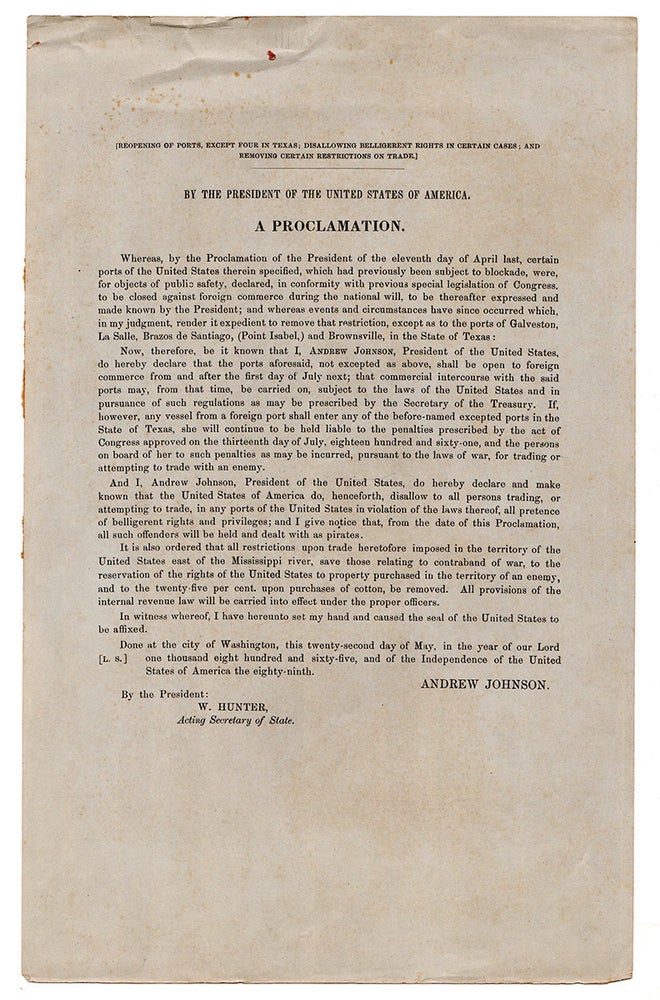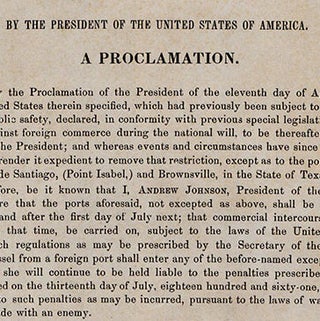Reopening of Ports, Except Four in Texas; Disallowing Belligerent Rights in Certain Cases; and Removing Certain Restrictions on Trade. By the President of the United States of America. A Proclamation.
Washington D. C., 22 May 1865. 4to (33.5 x 21 cm), gray paper. 1 p. Johnson’s proclamation lifting the blockade against foreign trade at U.S. ports—with the exception of ports in Texas, issued a month after the end of the Civil War. Opening with a reference to President Lincoln’s proclamation closing certain U.S. ports to foreign commerce, Johnson explains that events have since occurred which render it expedient to end these restrictions—with the exception of the Texas ports of Galveston, La Salle, Brazos de Santiago (Point Isabel) and Brownsville. All other ports are hereby ordered reopened by 1 July 1865. However, Johnson stipulates that
if…any vessel from a foreign port shall enter any of the before-named excepted ports in the State of Texas, she will continue to be held liable to the penalties prescribed by the act of Congress approved on the thirteenth day of July, eighteen hundred and sixty-one, and the persons on board of her to such penalties as may be incurred, pursuant to the laws of war, for trading or attempting to trade with an enemy […] all such offenders will be held and dealt with as pirates.
Johnson also orders that all restrictions heretofore imposed upon trade east of the Mississippi River be removed, with three exceptions: the trade of “contraband of war”; the twenty-five percent tax on purchases of cotton; and “the reservation of the rights of the United States to property purchased in the territory of an enemy.” The document is co-signed by William Hunter, Acting Secretary of State.
Rare. Worldcat records just one copy, at the New York Historical Society.
CONDITION: Light creasing and soiling to upper-left portion.
Item #5169
Sold



